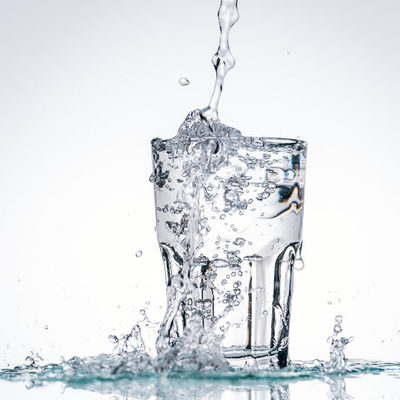
Water
What is water?
Water is a colourless, odourless liquid that is vital for life. Composed of one oxygen and two hydrogen atoms in each molecule, this chemical is a very important part of the cycle of life. Almost all living creatures need it to survive, including human beings.
- While human beings have been drinking H2O in some form or the other to survive since before they evolved into humans, potable water is another issue altogether.
- This is free of impure substances, fecal matter, and harmful bacteria.
The main sources of fluid intake are:
- Bottled water
- Soda
- Coffee
- Tea
- Juice
- Energy drinks
- Milk
- Beer
To learn more about what your drinking, you can seek out this information from your local watershed.
History
Among hunter-gatherers, waterborne diseases were not very prevalent. This was probably due to their developing aversion to it that tasted, looked, or smelled bad. But beyond this, there is not much information on early humans. However, after the development of agriculture, this became very important. At this point, waterborne diseases became a health risk and potable water became a necessity.
It is known from Jericho (7000 BC), Mohenjo-Daro (3000 BC), and Minoan (2000 BC) civilizations that humans used an extensive network of wells and pipes to take care of their supply. Springs and wells were used as a safe source. The ancient Greeks purified theirs and the Romans built aqueducts for distribution.
Bottled-water has also been around in some form or the other since several centuries.
Why drink water?
It is a wonderful drink that does a lot more than just quench thirst. Also, it is a vital food that the body requires. It helps in maintaining the balance of electrolytes and helps carry nutrients and oxygen to the cells through electrolytes. Regular and proper intake helps in flushing harmful bacteria from the bladder, decides how much waste to excrete from the body, aids digestion, and prevents constipation. Apart from these important tasks, it is also helpful in protecting the body’s organs and tissues, cushioning joints, stabilising the heartbeat, keeping the blood pressure and the body temperature at normal levels, etc. Drinking regularly also prevents dehydration or heat strokes.
So yes, it is very important, and you must ensure that you are taking in your body’s daily requirement.
How much to drink?
The general idea is that eight glasses a day is sufficient for most people. There has been some recent movement against this, but most doctors still recommend this formula. Of course, this is just a general recommendation and can vary with different factors such as age, weight, activity level, pregnancy, climate, etc.
It is also contained in beverages like tea and coffee, in soft drinks, juices, smoothies and almost any other liquid food. Additionally, it can be consumed through fruits like watermelon, etc. However, it is better to drink it plain in order to avoid dehydration through caffeine and over consumption of calories.
Drinking safe H2O
In many cities, drinking it from the tap is safe. However, in other cities, it can be mildly contaminated. If you don’t know the quality for certain, you can boil or filter it in order to make it safer. Alternatively, you can resort to buying bottled-water, which is already treated and purified. H2O with a pH of < 7 is considered acidic and with pH > 7 is considered basic. The normal pH range in H2O systems should be between 6.5 to 8.5.
H2O is a life-giving drink, and with good reason. It is extremely important to drink sufficiently to remain healthy.
FDA regulations
The FDA regulates bottled-water to ensure that it is bottled under sanitary conditions, this is protected from chemicals, bacteria, and other contaminants, and ensure the safety of the drinking. Bottled-water includes drinking water, mineral, sparkling, spring, distilled, and reverse osmosis.
References
National Health Service, UK
https://www.nhs.uk/news/food-and-diet/six-to-eight-glasses-of-water-still-best/
Jennifer Stone, University of Missouri System
https://www.umsystem.edu/totalrewards/wellness/how-to-calculate-how-much-water-you-should-drink
Megersa Olumana Dinka (March 21st 2018). Safe Drinking Water: Concepts, Benefits, Principles and Standards, Water Challenges of an Urbanizing World, Matjaž Glavan, IntechOpen, DOI: 10.5772/intechopen.71352. https://www.intechopen.com/books/water-challenges-of-an-urbanizing-world/safe-drinking-water-concepts-benefits-principles-and-standards
US Geological Survey
https://water.usgs.gov/wsc/map_index.html
